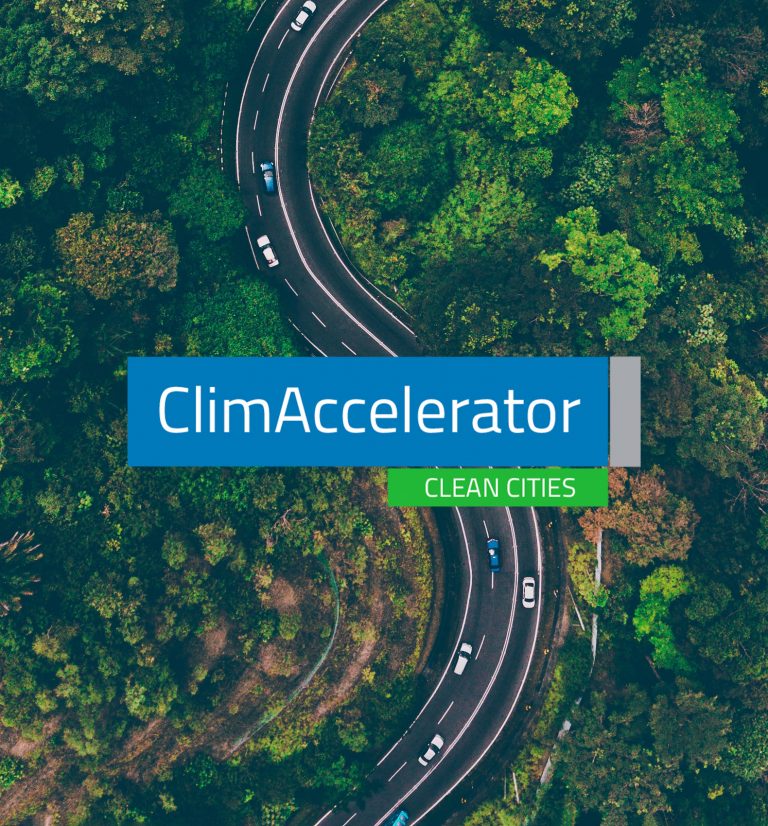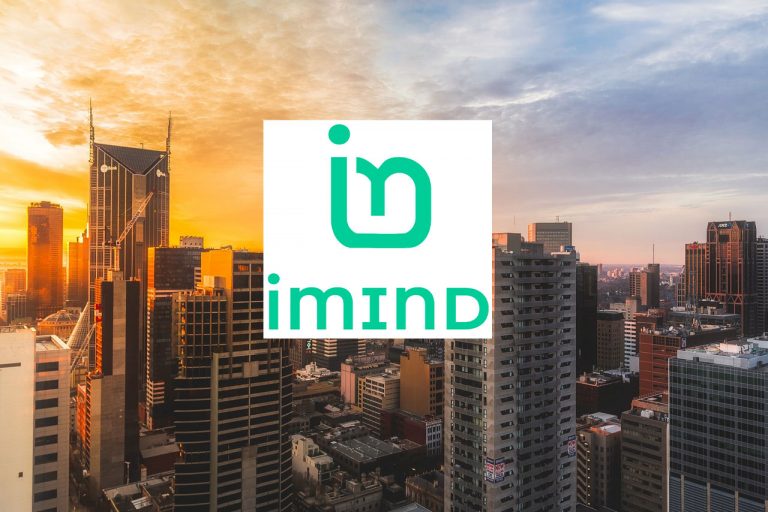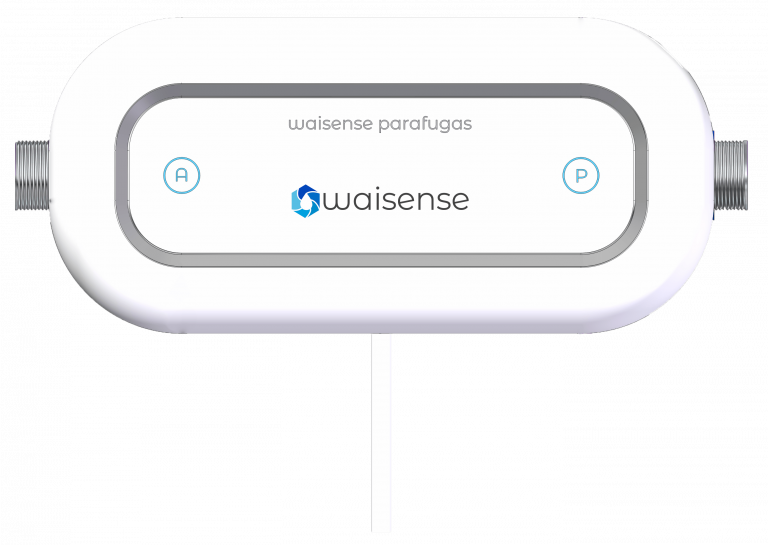DEMETER is a European project funded by Horizon 2020. It’s focuses on the large-scale development of interoperable IoT platforms for the agri-food sector. The objective is to attract and involve Startups that have products or technological solutions that can be implemented in the agri-food sector.
This project consists of five different themes:
-
- Soil workability and humidity monitoring
- Interoperable Geo Tagged Photo APP
- ISOBUS enabler
- Blockchain-based solutions for agricultural applications
- DEMETER Business process integration (BPM)
The first phase of DEMETER lasts six months, dedicated to the research and development of a pilot. The second phase is 19 months for testing the technology in a real environment.
WAISENSE FIELDS
Metrica6 is one of the Startups participating in this project with the WAISENSE FIELDS solution for controlling soil workability and humidity.
With this project we want to achieve the interoperability and integration of a modular IoT technology to monitor the existing humidity in the land (and evaluate its workability) and that works automatically in the control of irrigation to help the agri-food sector to maintain optimal conditions.
The technologies that form WAISENSE FIELDS make it possible to improve the quality of field evaluation and decision-making. Thanks to this solution, water consumption can be reduced between 30-80%.
WAISENSE FIELDS is a cyber-physical solution composed of a series of modules connected to a platform, with multiple combinations so that the client can adapt it to their needs.
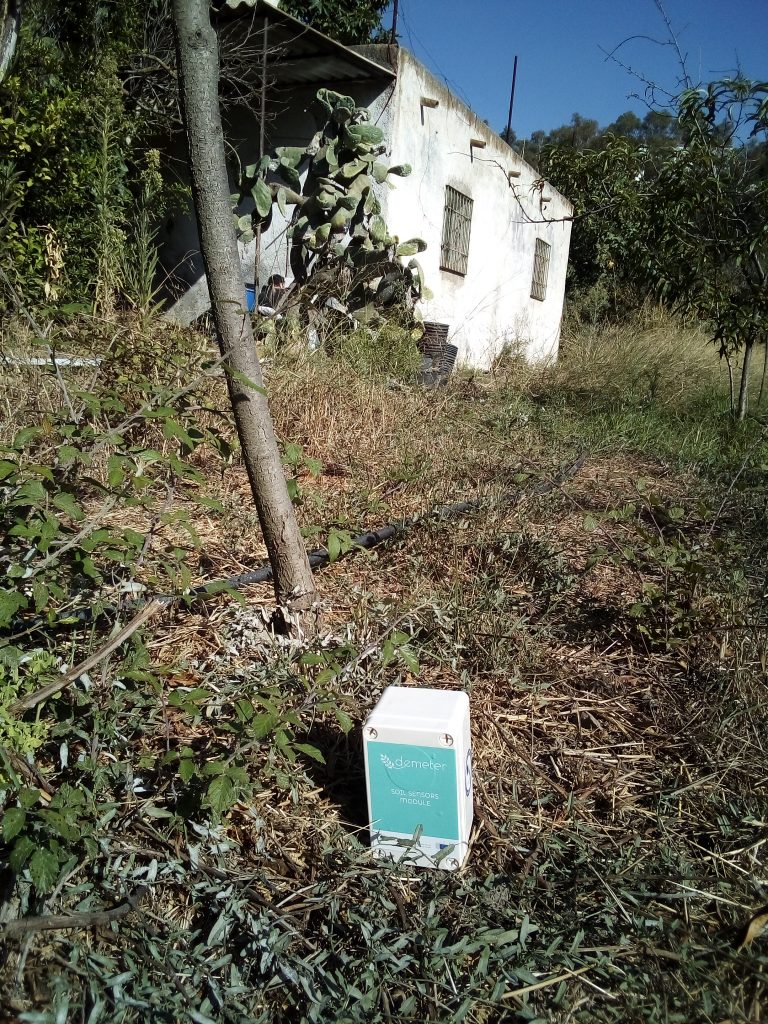
This technology includes:
-
- Soil sensors module: Humidity sensor for the ground. Upon request, it can include the measurement of other parameters as requested by the farmer. Examples: temperature, pH, salinity, etc.
- Ambient sensors module: Registers the ambient temperature and humidity.
- Sensorized pump module: It is a pump with pressure and temperature sensors. Used to start / stop the watering cycle and to prevent freezing.
- Sensorized Valve module: Valve with flow meter that allows irrigation with precision. The flowmeter is programmed to detect water leaks and cut off the supply.
- Gateway: This module allows bidirectional communication between the modules and the platform, both to send information and to send orders.
- Platform: Dashboard for control and communication with the system from a computer. It allows to view the control area, collect data from the sensors, activate / deactivate the program, program alerts, etc.
- App: It has many of the functions of the platform. It includes other parameters such as notifications in real time, taking photos / videos, immediate interaction with the modules, etc.
- Satellite Mapping Information: It is an addition to the online platform. It allows to measure humidity and other parameters on a larger scale using satellite images.
THE PROJECT
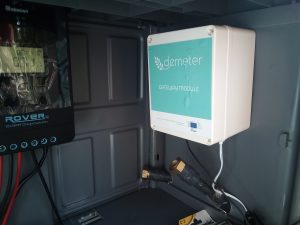
This project has been carried out on a farm located in Murchas, Granada, where the different modules have been installed to test their effectiveness and operation, as well as a solar panel to provide them with energy.
The first phase of DEMETER lasts six months, divided into three Sprints of two months each.
In Sprint 1, the technical regulations applied to agriculture in Europe (starting with Spain) and the interest of potential clients and collaborators have been analyzed. Based on these premises, a working group has been created with the aim of incorporating these solutions into our product and adapting it to current development. Work has also been done on the digital tools necessary to start Sprint 2. As a result of our work, we have carried out a preliminary exploration of the integration of our system in the DEMETER platform and the initial infrastructure has been considered.
Sprint 2 begins with the definition of the solution to be developed, taking into account the information obtained in Sprint 1. This solution has been developed at the Hardware and Software level. Regarding the hardware level, the five modules that make up WAISENSE FIELDS (Soil sensors module, Ambient sensors module, sensorized pump module, sensorized valve module and Gateway) have been developed. For the software, work has been done on the implementation of the back-end, the authorization and the authentication system and its advanced functionalities. From this point we see how the integration with AIM is carried out and how to access to obtain the information in the format. In this Sprint the firmware is implemented and the app is started. In this Sprint, laboratory tests were also carried out to ensure that the data is retrieved from the sensors and that it is ready to be incorporated into the pilot.
The implementation of the technologies developed during Sprints 1 and 2 is carried out in Sprint 3 on a farm in Murchas, Granada. This implementation has been carried out adapting to the needs of the property and the land.
All these modules and technologies have been integrated with the different components of DEMETER, from which we have been able to obtain benefits for the development of our project. Thanks to the application of these components, we can share the data obtained with the rest of the members of DEMETER and have a common vocabulary when presenting results.
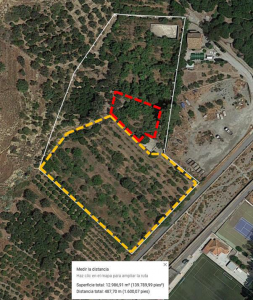
WAISENSE FIELDS has undertaken the implementation and testing of the previously described technology for field monitoring, irrigation control and decision-making system that connects with the DEMETER program. The objectives of these three sprints have finished satisfactorily, with a vast improvement in our system and development of new objectives.
Thanks to this project we have also had the opportunity to jointly implement our own technologies, test them and solve the problems that have arisen. This has allowed us to improve our systems and processes.
The next steps over the next 19 months will be devoted to testing this technology in real environments.
Thanks to the DEMETER project, other collaborators, who have also uploaded their own projects, can benefit and we can work together with new application objectives in multiple projects and pilots.
This project has indirectly received funding from the European Union’s Horizon 2020 research and innovation program under project DEMETER (grant agreement No 857202)

